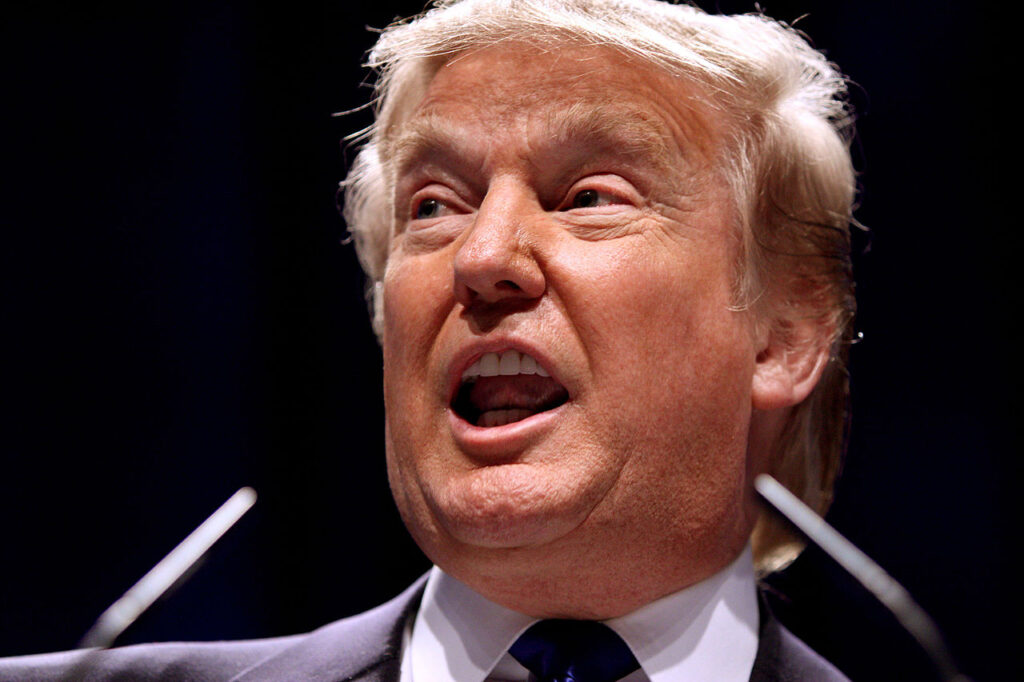Overview
The recent indictment of Donald Trump alleges that he criminally lied about election fraud when contesting the 2020 presidential election. In the words of the indictment, Trump “spread lies that there had been outcome-determinative fraud in the election and that he had actually won. These claims were false, and the Defendant knew that they were false.”
The indictment claims that Trump lied because he “was notified repeatedly that his claims were untrue—often by the people on whom he relied for candid advice on important matters, and who were best positioned to know the facts—and he deliberately disregarded the truth.”
For example, the indictment accuses Trump of lying because he “said that more than 30,000 non-citizens had voted in Arizona” even though:
- his “own campaign manager had explained to him that such claims were false.”
- “the Speaker of the Arizona House of Representatives, who had supported the Defendant in the election, had issued a public statement that there was no evidence of substantial fraud in Arizona.”
The indictment creates the impression that Trump pulled the figure of “more than 30,000” out of thin air. In reality, it’s from a rigorously documented study that was vetted by two Ph.D. scholars, published by the research institute Just Facts, and conducted by James D. Agresti, the organization’s president and author of the present article. Reinforcing the integrity of the study, a Facebook-funded attempt by USA Today to “fact check” it fell flat.
In brief, a D.C.-based grand jury indicted Trump in part for citing a factual study instead of claims from people the jury deems to be reliable. These jurors were drawn from the politically stacked jury pool of Washington, D.C. where 92% of the population voted for Joe Biden. The indictment was obtained by Jack Smith, a prosecutor who was hand-picked by the Biden administration.
The Study
The figure cited by Trump is from a study conducted by Just Facts, a research and educational institute that has been cited by a diverse array of media outlets, universities, governments, think tanks, and peer-reviewed journals. By adhering to exacting Standards of Credibility, Just Facts has been presciently accurate about far-reaching issues that other organizations widely botched.
As with all studies from Just Facts, the study on voting by non-citizens is rigorously documented with fully transparent data and extensive hyperlinks and quotations of primary sources, including:
- a study in the journal Electoral Studies conducted by three scholars, including two university professors.
- a follow-up working paper by the same scholars.
- a study by the Chief Actuary of the Social Security Administration.
- an investigation by the U.S. Government Accountability Office.
- three surveys conducted by Harvard/YouGov.
- a scientific bilingual survey of Hispanic adults conducted by McLaughlin & Associates.
- the U.S. Census Bureau.
- a legal brief by the Obama administration Department of Justice.
- the Voter Registration Guide of the U.S. Election Assistance Commission.
- a video of President Obama stating in 2016 that non-citizens would not be deported if they voted because “there is not a situation where the voting rolls somehow are transferred over, and people start investigating, etcetera.”
- a video of Democratic California Senate Leader Kevin De Leon stating in 2017 that “anyone who has family members who are undocumented knows that almost entirely everybody has secured some sort of false identification.”
- a ruling by the U.S. Tenth Circuit Court of Appeals.
- a ruling by the U.S. Supreme Court.
Just Facts asked two Ph.D. scholars who specialize in data analytics to critically review the study, and they assessed it as follows:
- “I find this research of great value—clear in its assumptions, clear about the sources of data used, methodologically sound, and fair in its conclusions. Furthermore, it contains enough references to allow any interested person to ‘fact-check’ every aspect of it.”
– Michael Cook, Ph.D. Mathematician, Scientific and Quantitative Researcher
- “Instead of adding politics, vitriol, and bias to this timely, heated topic, this study provides a credible data analysis that supports a strong hypothesis of non-citizens having a significant effect on this election. Any serious critic should try improving on these estimates, as opposed to dismissing them with unproven claims.”
– Dr. Andrew Glen, Ph.D., Professor Emeritus of Operations Research, The United States Military Academy, and Award-Winning Researcher in the Field of Computational Probability
The study estimated that votes cast by non-citizens—who cannot legally vote in federal elections—netted Joe Biden 51,081 ± 17,689 votes in Arizona. The lower bound of this range accords with the figure of “more than 30,0000” from the indictment.
Trump campaign attorney Rudy Giuliani cited another figure from Just Facts’ study in a November 2020 hearing before the Arizona legislature. Giuliani stated that a study found “236,000 illegal aliens voted.” This is the study’s midpoint estimate for non-citizen votes netted by Joe Biden in the seven battleground states of the 2020 election.
Critiques of the Study
A week and a half after Just Facts published this study, USA Today attempted to debunk it with a “fact check” that was “supported in part by a grant from Facebook.” Facebook then used the fact check—which contained 10 misrepresentations, unsupported claims, half-truths, and outright falsehoods—to suppress Just Facts’ study.
Furthermore, USA Today altered its article 18 hours after publication to remove an embarrassing error—without issuing a correction. This is a breach of journalistic ethics that require reporters and media outlets to “acknowledge mistakes” and explain them “carefully and clearly.”
Likewise, Snopes, PolitiFact, and the Huffington Post attempted to refute a 2017 study by Just Facts that used a similar methodology to estimate non-citizen votes in the 2008 presidential election. Instead of providing facts, all they could muster was mathematically illiterate notions, half-truths, and full-fledged falsehoods.
The total failure of the “fact check” brigade to poke even small holes in Just Facts’ work is more evidence the studies are solid.
Other Aspects of the Indictment
Beyond voting by non-citizens, the indictment also accuses Trump of lying about:
- “dead voters” in Georgia.
- “more votes than voters in Pennsylvania.”
- a “suspicious vote dump in Detroit, Michigan.”
- “double votes and other fraud in Nevada.”
- voting machines switching votes.
With the exception of the last of those items, the indictment presents no facts that Trump was wrong—much less that he lied. Instead, the indictment declares that Trump knew he wrong just because certain people said so.
Likewise, the indictment alleges that “Co-Conspirator 1”—who is probably Rudy Giuliani—lied because be “played a misleading excerpt of a video recording of ballot-counting at State Farm Arena in Atlanta and insinuated that it showed election workers counting ‘suitcases’ of illegal ballots.” Here again, the evidence that Giuliani lied rests on the notion that he must have believed the claims of selected people—in this case—the Georgia Secretary of State’s Chief Operating Officer.
One of the blatant flaws of such arguments is the common human foible of confirmation bias, which could have led Trump and Giuliani to make some honest mistakes. Britannica defines confirmation bias as “people’s tendency to process information by looking for, or interpreting, information that is consistent with their existing beliefs.” “This biased approach to decision making,” explains Britannica, “is largely unintentional” and “results in a person ignoring information that is inconsistent with their beliefs.”
Another flagrant weakness of the indictment is its assumption that specific people were telling the truth merely because they “were best positioned to know the facts.” This presumes that such people are incapable of making mistakes or lying. The fallibility of this “trust the experts” mantra was frequently exposed during the Covid-19 pandemic.
The indictment also alleges that Trump “directed” his supporters “to the Capitol to obstruct” the presidential “certification proceeding” on January 6, 2021. The supposed proof of this is that he told them to “fight like hell,” march to the Capitol, and show Congress “the kind of pride and boldness that they need to take back our country.” These half-truths fail to reveal that:
- Trump told his supporters to go “to the Capitol building to peacefully and patriotically make your voices heard.”
- the official Capitol Police timeline of the January 6th riot reveals that:
- the Department of Defense—which was under the authority of Trump—suggested to the Capitol Police that the National Guard protect the Capitol.
- Capitol Police Chief Steven Sund then asked the House Sergeant at Arms and the Senate Sergeant at Arms for “authority to have National Guard to assist with security for the January 6, 2021 event.”
- the House and Senate Sergeants at Arms—who were under the authority of House Speaker Nancy Pelosi and Senate Leader Mitch McConnell—“denied” this request.
- the transcript of Trump’s speech on January 6th shows that he recurrently used the word “fight” in reference to legal and political fighting, not physical violence or even trespassing. For example, he said, “If they don’t fight, we have to primary the hell out of the ones that don’t fight. You primary them.”
Highlighting the duplicity of those who voted to impeach Trump because he used the word “fight,” Trump’s attorneys showed videos of Congressional Democrats using the same word more than 200 times, including more than a dozen times in which they used the exact phrase for which they impeached Trump: “fight like hell.”
Conclusion
The D.C. grand jury’s indictment of Donald Trump accuses him and at least six other people of engaging in a “conspiracy against the right to vote and to have one’s vote counted, in violation” of a federal law against obstructing people’s Constitutional rights.
However, every illegal vote cast by a non-citizen cancels out the vote of a citizen, thereby infringing their right to vote. Thus, Trump and his allies—depending on their motives—may have been trying to protect people’s right to vote, not thwart it, as the indictment claims.
Conversely, those who fought Trump’s efforts to exclude illegal votes may be guilty of the very charges the indictment levels against Trump. The same applies to an array of politicians and judges who have left open large pathways to unlawful voting by non-citizens.
Photo by Gage Skidmore, Attribution-Share Alike 2.0 Generic.






